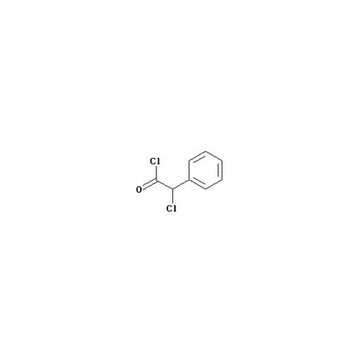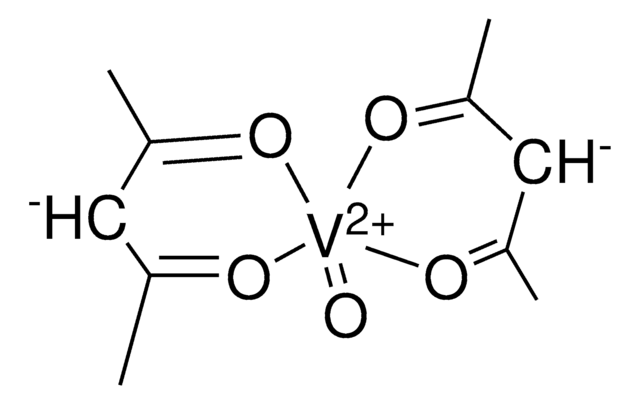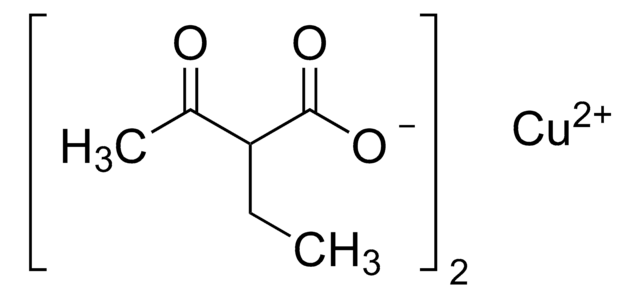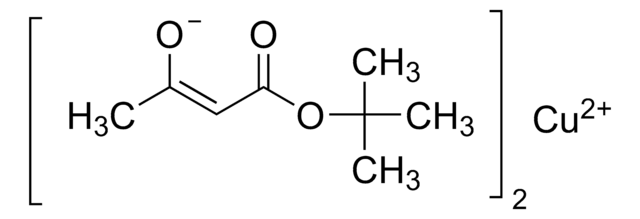C87851
Copper(II) acetylacetonate
97%
Synonym(s):
2,4-Pentanedione copper(II) derivative, Bis(2,4-pentanedionato)copper(II), Cu(acac)2, Cupric acetylacetonate
About This Item
Recommended Products
Assay
97%
form
powder
reaction suitability
core: copper
reagent type: catalyst
mp
284-288 °C (dec.) (lit.)
SMILES string
CC(=O)\C=C(\C)O[Cu]O\C(C)=C/C(C)=O
InChI
1S/2C5H8O2.Cu/c2*1-4(6)3-5(2)7;/h2*3,6H,1-2H3;/q;;+2/p-2/b2*4-3-;
InChI key
QYJPSWYYEKYVEJ-FDGPNNRMSA-L
Looking for similar products? Visit Product Comparison Guide
Application
- Dextromethorphan as a moderator of reward deficiency: Research explored Dextromethorphan′s role in moderating reward deficiency associated with serotonin transporter availability in MDMA-treated animals, indicating its potential application in neuropsychopharmacology and addiction studies (Chiu et al., 2024).
- Pharmacotherapies targeting GABA-Glutamate neurotransmission: A review discussed the use of Dextromethorphan among pharmacotherapies targeting GABA-glutamate neurotransmission for treatment-resistant depression, highlighting its role as an NMDA receptor antagonist and sigma-1 receptor agonist (Vecera et al., 2023).
- Experience-dependent psychological effects: A double-blind study compared the psychological effects of Dextromethorphan and Psilocybin in healthy volunteers, examining their experience-dependent and enduring impacts, relevant in clinical psychology and psychedelic research (Mathai et al., 2023).
Signal Word
Warning
Hazard Statements
Precautionary Statements
Hazard Classifications
Eye Irrit. 2 - Skin Irrit. 2 - STOT SE 3
Target Organs
Respiratory system
Storage Class Code
11 - Combustible Solids
WGK
WGK 3
Flash Point(F)
Not applicable
Flash Point(C)
Not applicable
Personal Protective Equipment
Certificates of Analysis (COA)
Search for Certificates of Analysis (COA) by entering the products Lot/Batch Number. Lot and Batch Numbers can be found on a product’s label following the words ‘Lot’ or ‘Batch’.
Already Own This Product?
Find documentation for the products that you have recently purchased in the Document Library.
Customers Also Viewed
Articles
Copper metal deposition processes are an essential tool for depositing interconnects used in microelectronic applications, giving group 11 (coinage metals: Copper, Silver, and Gold) an important place in atomic layer deposition (ALD) process development.
Our team of scientists has experience in all areas of research including Life Science, Material Science, Chemical Synthesis, Chromatography, Analytical and many others.
Contact Technical Service













